| |
| |
Photographer,
Location, Date |
Larger images |
Comments |
|
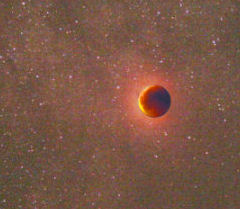
|
Luca Basili,
Rome, Italy
Jun. 15, 2011 |
#1,
|
22h50m Canon 5D + 85/1.4@ f/3.5 stack of 15s3200iso + 1/4s1600iso
|
|
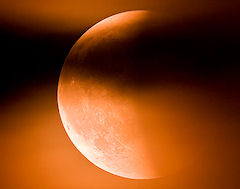
|
Marek Nikodem,
Niedźwiady Observatory, near Szubin. Poland
Jun. 15, 2011 |
#1,
#2, #3,
#4, more |
Ticket to the eclipses Moon. There was cloudy and foggy night. View of moon was amazing and fantastic. Details: Nikon D 700, Sigma 500 mm and refractor 100/900
|
|
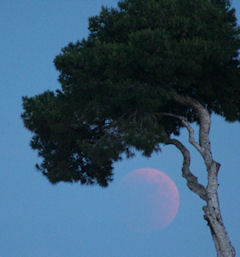
|
Yves Roudier,
Antibes, France
Jun. 16, 2011 |
#1,
#2, more |
The Moon played with the clouds and with our nerves at the beginning of the eclipse, then everything went extremely smoothly as the night fell. Camera - Canon EOS 350D.
|
|
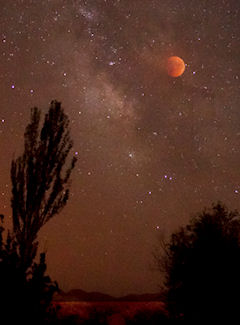
|
Amirreza
Kamkar,
zool-qayen-iran
Jun. 16, 2011 |
#1,
#2, #3 |
That was wonderful to see full moon beside this landscapes! That was dark during eclipse.
|
|
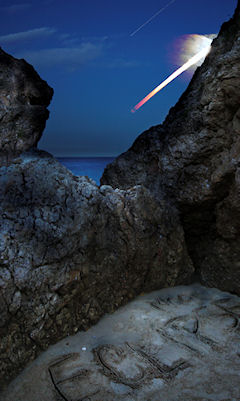
|
Miguel Claro,
Portinho da Arrábida, Portugal.
Jun. 15, 2011 |
#1,
more |
In Portugal the moon eclipsed was born in the phase of totality, and only became visible in the hours of nautical twilight at 21h43 ( local time). In the picture we can see the different tone of the track of the eclipse, while the Moon is moving out of the shadow cone of the Earth. Image obtained in Portinho Arrábida, Portugal, near the Atlantic Ocean. I wrote in the sand with a rock, the phenomenon that was happening ... a " Moon Eclipse".
Sum of 357 images each 10 seconds, with a total integration of 59.5 minutes.
Canon 50D -ISO200 16mm F/5
|
|
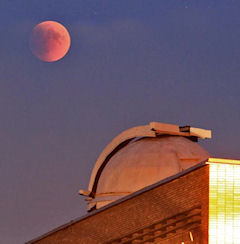
|
Nikolay Nikolaev,
Moscow, Russia
Jun. 15, 2011 |
#1,
#2, #3,
#4 |
Canon 550D,
lens Canon 70-200/f 4, L |
|
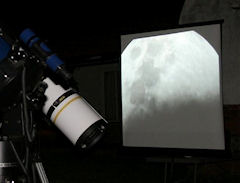
|
Kosma Coronaios,
Louis Trichardt, Limpopo Province, South Africa
Jun. 15, 2011 |
#1,
#2 |
Absolutely beautiful. The cold weather did not stop eclipse enthusiasts joining the Soutpansberg Astronomy Club to see the evening’s show. A 10 inch Newtonian Reflector with a Foton AstroCam attached was used to projects stunning images of the Moon while an 8 inch Schmidt Cassegrain was used for visual observing.
|
more
images: from
YAGIZ OZGUR TURKKAN of Bahcesehir, Istanbul, Turkey; from
John Sarkissian of CSIRO Parkes Observatory, NSW, Australia;
from
Sangku Kim of Incheon, South Korea; from
Mohamad Soltanolkottabi of Hunejan, Esfahan, Iran; from
Jeddah Astronomy Society of Jeddah , SAUDI ARABIA; from
Rolando Ligustri of Talmassons Observatory, Italy;
|
|